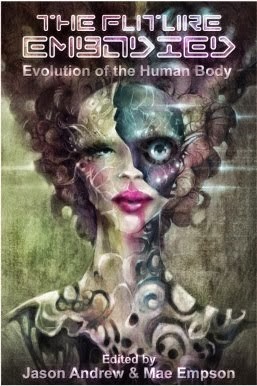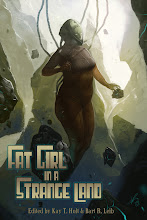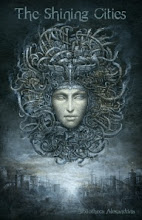I discovered the short story I had a sneaking suspicion was actually a novel last fall is, in fact, a novel. And I’m 90% done drafting it. I have the last section roughly outlined, and should finish up the first draft by the end of the month if not sooner.
And it needs to get done by then. So I can revise it, and expand it, and send it to my CPs, all in time before Taos Toolbox come June when I plan on sharing the novel with the other participants. It’s overwhelming when I look at all those goals smooshed into a single sentence, but the terror is keeping me going, keeping me productive, as I pound out ~2k a day to get there.
But even though the first draft isn’t completed yet, I’m already thinking about what I’ll need to do to prepare for the second pass. I don’t have the time to set the story aside for a couple of months – even though I am planning on a break here and there for writing short stories.
So I need to be focused and smart in terms of how I proceed.
Research
I’ve been doing a lot of research on an as-needed basis as I’ve been drafting, but there’s still a lot more to be done to really make the story come alive. Aspects of the world I’ve created need to be fleshed out and tied more firmly to plot elements. Parts of the story take place where I live currently, so field trips to area attractions and museums and the like are good too for getting at those concrete sensory details to anchor the story action and make it as authentic as possible. Geography, language, history, science, politics…I’m drawing on it all and want it represented as accurately as I’m capable of doing in this second draft.
Description
This is one of those things I have to consciously incorporate when I write. I usually get so caught up in action and dialogue that description usually falls by the wayside. So in my second draft, I know I’ll need to really pay attention for opportunities to describe my world and my characters. I’ll be drawing on my research for one, but now that I’ll have a completed draft, it’ll be easier for me to go back and accurately depict my characters as well. Usually, I don’t really have a good sense of my characters until I finish the first draft, where I can then chart their character arc over the whole story. So on this second pass, I’ll be taking a hard look at how I describe and characterize the story players throughout the book.
Stakes
Partly because of the way I’ve chosen to structure this book (for now) and partly because I’ve been so focused on getting to the end of the first draft, stakes aren’t as fully explored as they’ll need to be if I want to attempt to publish this story. In my second draft, I’ll be taking a hard look at each chapter, each section of the story, to determine ways to consistently raise the stakes and ratchet up the tension as the story progresses. It’s close now, but it needs to be even more pronounced to achieve that page-turning quality in what’s turned out to be a more character-driven sci-fi adventure (I know, I’m still wondering how that happened too).
Plot Expansion
Because I’ve been flying through my initial draft (for me at least), there are some huge gaps where I’ve left out entire scenes or
have only provided the barest skeleton of story action. All of those areas will need to be fleshed out and expanded. There’s a good chance what I discover in writing these new scenes will need to be incorporated elsewhere in the story as well so everything fits together naturally – I don’t want things shoehorned or appended onto the story at this stage. Things should hang together at this point. And if they don’t, I know I have more work to do.
Sentences
This probably goes without saying, but when I’m drafting I don’t always have my most beautiful prose flowing. I’m trying to get from point A to point Z as fast as possible, and
if the right word or phrase isn’t readily available, I skip it and move on. On the second pass, I need to root out every instance of lazy writing, cut clichés and awkward phrasing, and instead create laser-sharp prose chock full of precise details. Intentional writing, made a heck of a lot easier once I have my first draft done and understand the shape of the story.
Keep your fingers crossed for me as I finish up my first draft and decide what to do with it.
What do you look for improving on a second pass? How do you prepare to revise a first draft?











